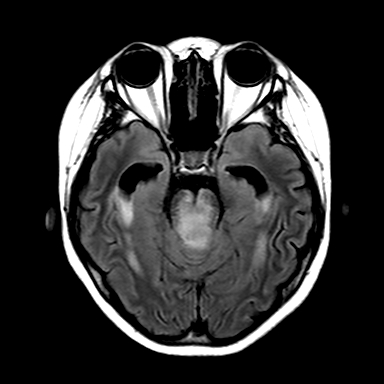Bilateral Pontine Syndrome
- Reduced horizontal eye movements to both sides but preserved vertical eye movements caused by a bilateral pontine lesion
- Often accompanied by other neuro-ophthalmic and neurologic deficits
- Common causes: pontine infarct or hemorrhage, autoimmune demyelination, cavernous malformation (“cavernoma”)
- Uncommon causes: pontine tumor, osmotic demyelination (“myelinolysis”)
-
Core features
- Slow, reduced, or absent horizontal gaze to both sides, often with relatively preserved vertical gaze
- Doll’s eye and caloric testing do not overcome the horizontal gaze paresis
- Convergence of the eyes on attempted lateral gaze (“substituted convergence”)
- Preserved vertical gaze
- Preserved pupil constriction to light
- Skew deviation sometimes
- Nystagmus sometimes
-
Possible accompanying neurologic features
- Quadriparesis (“locked-in syndrome”)
- Bilateral facial palsies
- MRI usually shows a dramatic pontine lesion, such as infarction, diffuse infiltrating glioma, cavernoma, or demyelination
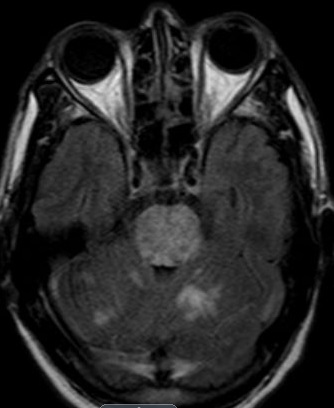
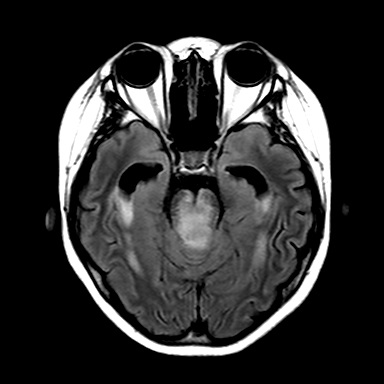
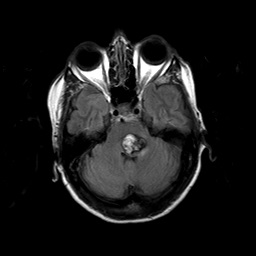
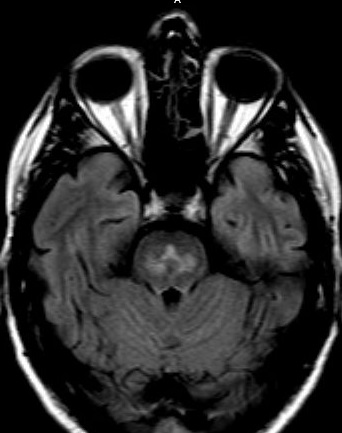
- Myasthenia gravis
- Fisher variant of Guillain-Barré syndrome
- Wernicke encephalopathy
- Localize the lesion to the pons by finding that the doll’s eye maneuver does not overcome the volitional gaze paresis
-
Tip: the combination of a horizontal gaze paralysis and a sparing of vertical gaze localizes the process to the pons
- Look for other localizing clinical abnormalities
- Exclude myasthenia gravis, Fisher variant of Guillain-Barré syndrome, Wernicke encephalopathy
- Order CT/CTA, MRI/MRA promptly
- Depends on the cause
- Expect limited recovery in pontine infarct/hemorrhage
-
Tip: add Wernicke encephalopathy to the differential diagnosis when there is any gaze paresis, especially with gaze-evoked jerk nystagmus!
